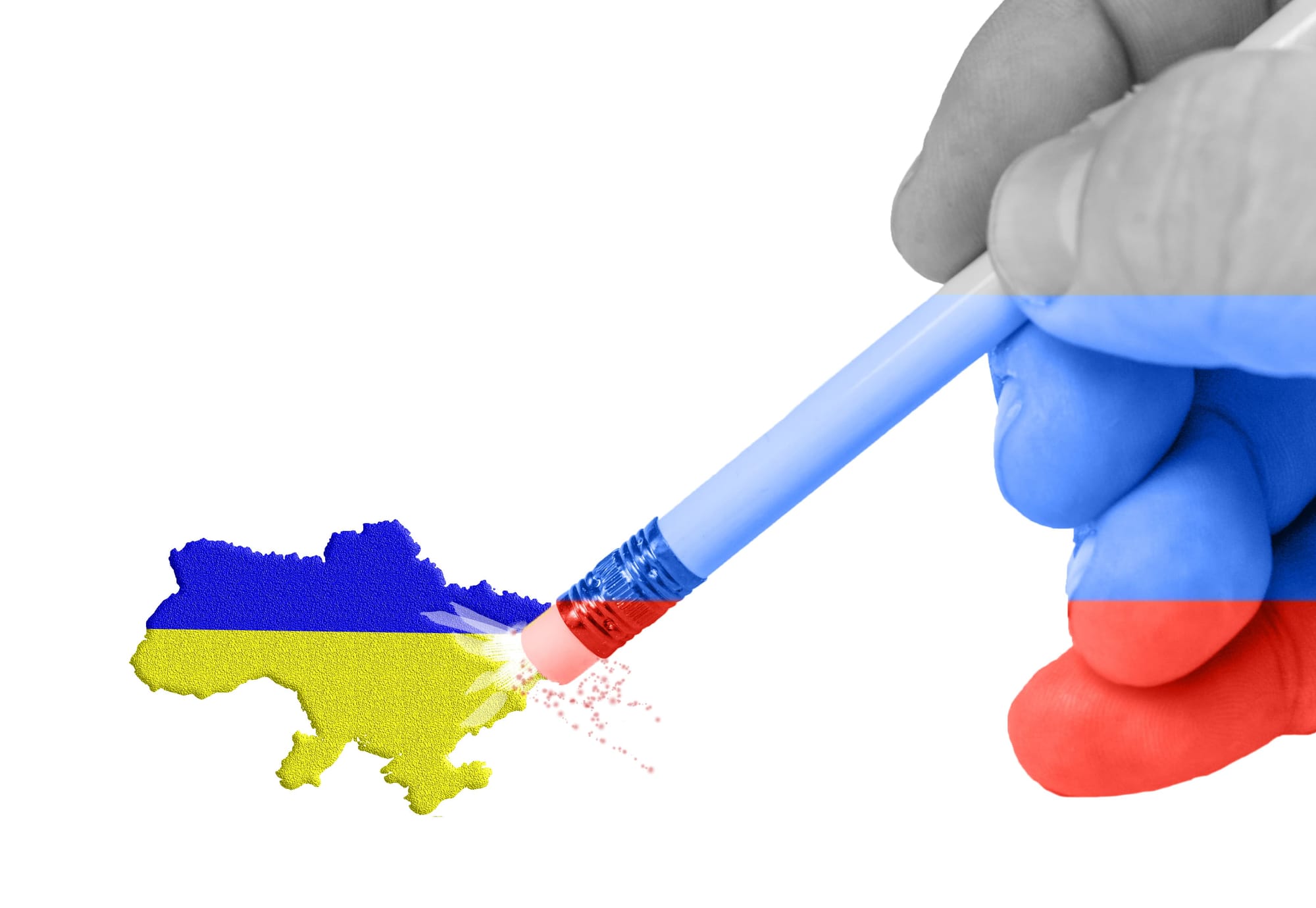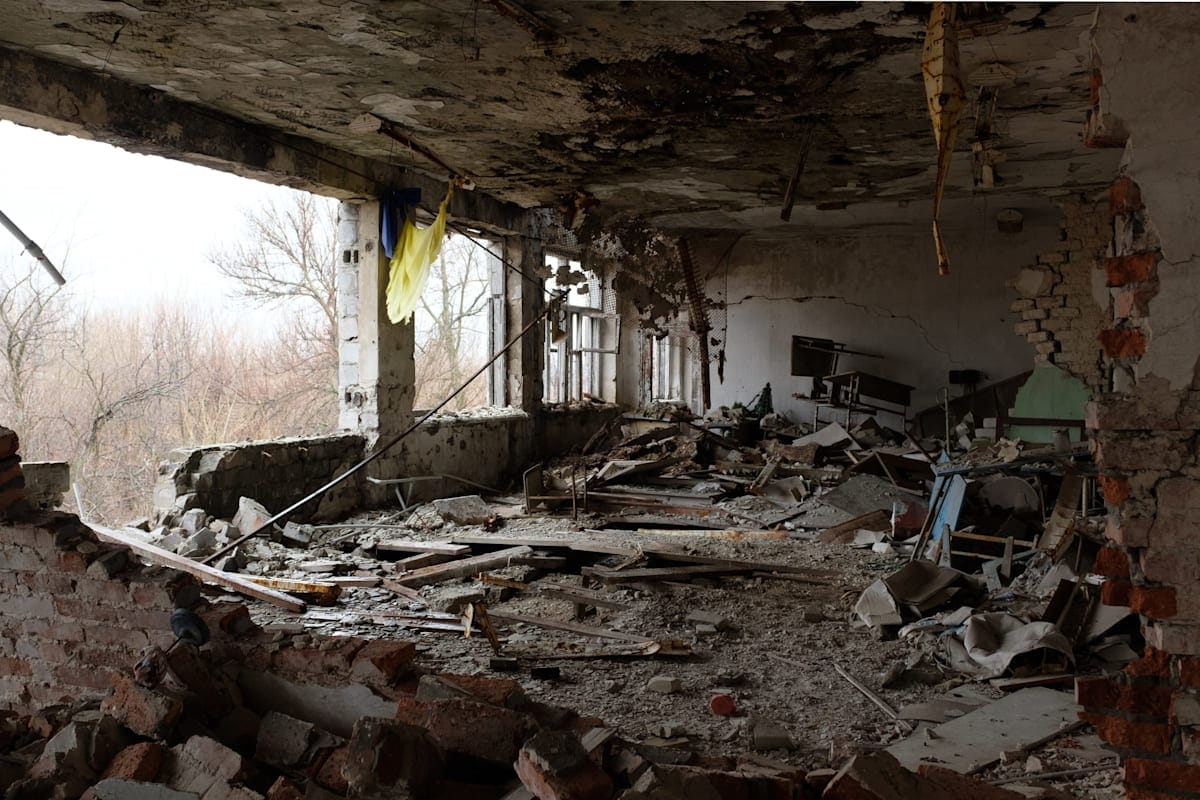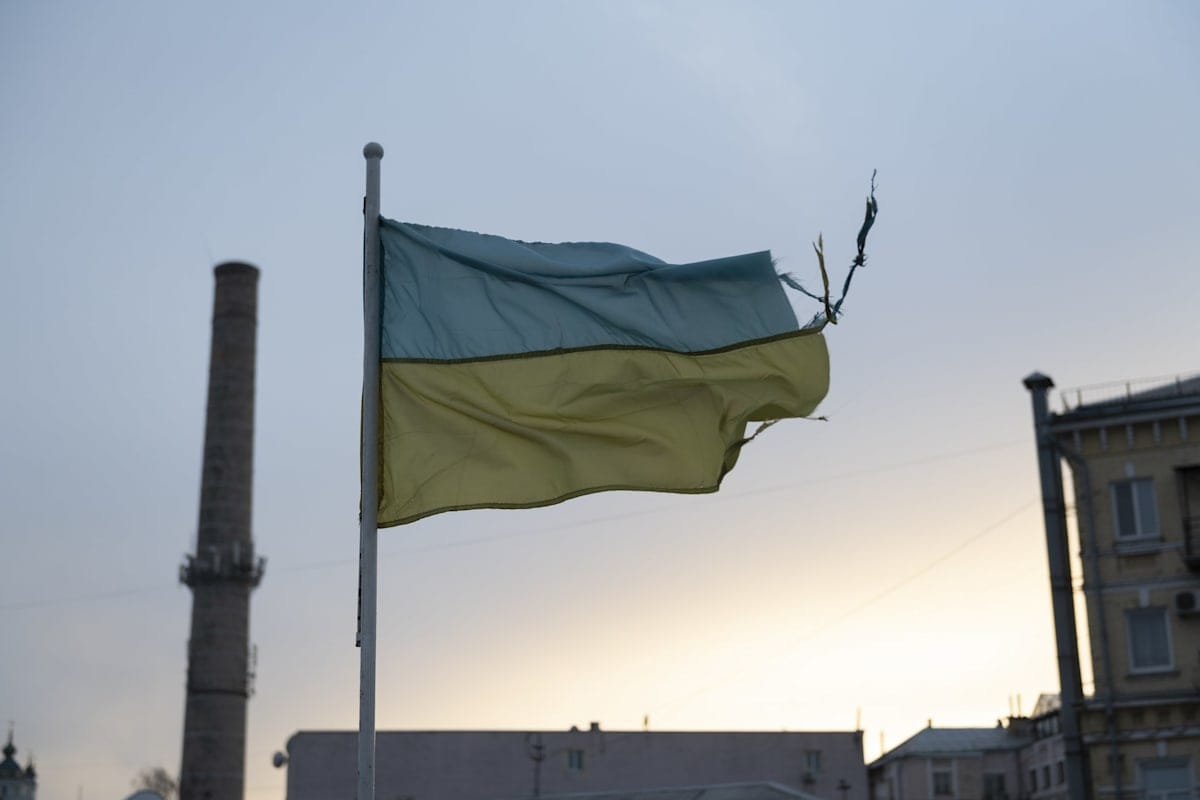
The Kremlin frequently claims Russia invaded Ukraine due to a perceived security threat posed by NATO enlargement, and this “security explanation” is often accepted at face value.
It should be noted that Ukraine, as a sovereign state, has the right to choose its own security arrangements irrespective of Russia’s wishes, and has repeatedly elected pro-Western, pro-NATO governments.
Nonetheless, the “NATO expansion” claim deserves scrutiny.
The presence of the NATO bloc at Russia’s borders is often described as a threat to the latter, although this border has been static since 2004. Russia has shared this more than 600km land border with NATO since the three Baltic states of Estonia, Latvia and Lithuania joined the bloc in 2004 after a decade of vociferous lobbying.
Putin repeatedly stated that the Baltic states’ accession posed no threat to Russia’s national security, and Russia made no diplomatic protest against their accession.
Although not a member of NATO, Ukraine has been integrated into the European security order for decades. Under the 1994 Budapest Memorandum, Ukraine surrendered the nuclear weapons stockpile it had inherited from the Soviet Union – the world’s third-largest at the time – to the Russian Federation, in addition to dismantling a large amount of conventional weaponry.
Under the memorandum, the US and UK made assurances to guarantee Ukraine’s sovereignty, and Russia pledged to respect Ukraine’s territorial integrity, including Crimea and Donbas.
Despite again committing to respecting Ukrainian territorial integrity under the bilateral 1997 Friendship Treaty, the 2010 Black Sea Fleet Agreement, and others, Russia has simply discarded these obligations when it chooses.

Little prospect of Ukraine joining NATO
NATO accession requires unanimity, and there’s been little prospect of Ukraine joining NATO since 2014. In particular, the “collective defence” provision in Article 5 of NATO’s founding treaty makes it almost impossible for a country facing internal conflict to join the bloc.
German Chancellor Olaf Scholz reportedly spoke with Putin just days before the invasion, and recalled that Putin clearly knew Ukraine would not join NATO in the foreseeable future. Indeed, Ukrainian President Volodymyr Zelensky conceded early in March 2022 that Ukraine would not become part of NATO.
It wasn’t NATO that caused Russia to abruptly cut off natural gas supplies to Ukraine in mid-winter in 2006 and 2009, and indeed, to repeatedly use gas exports as a weapon of economic war throughout Europe.
Moldova, another post-Soviet state, has never sought to join NATO, but Russian troops have nonetheless been stationed there since the early 1990s, propping up the Transdniestria insurgency, despite Russia pledging to withdraw its forces at the 1999 Istanbul Summit.
Russia did not send two agents to England in 2018 to poison former agent Sergei Skripal, killing a bystander, because of NATO. Ukraine’s decisive break from Russia in 2013-2014 came as a result of Ukraine’s impending Association Agreement with the EU, not NATO.
Nonetheless, Russia has been waging war with 10,000-plus regular soldiers in Ukraine’s east since 2014 – note that US arms shipments to Ukraine didn’t commence until December 2017, three years after Russia invaded.
No ‘red line’ to justify invasion
There is simply no plausible security “red line” that could have driven Russia to invade Ukraine in February 2022. None.
Outside of curated statements given to rationalise the invasion, Putin’s inner circle time and again justifies the war in overtly imperialist terms.
Dmitry Medvedev, once considered a Kremlin moderate, posted on social media that “who's to say Ukraine will still exist in two years’ time” [sic], and has called prospective security guarantees for Ukraine “a prologue to World War III”.
Kremlin stalwart Dmitri Rogozin called Ukraine an “ existential threat to Russia”. Foreign Minister Sergey Lavrov has restated that Russia retains maximalist aims of regime change and political control over much of Ukraine, and Russia’s UN Envoy, Gennady Gatilov, has ruled out negotiations between Putin and Zelensky.
Few make their imperialist designs on Ukraine more explicit than Vladimir Putin himself. In 2008, he reportedly told George W. Bush that “Ukraine is not even a [real] country”, and in 2021 penned and publicised a notorious 7000-word essay on the “historical unity” of Russians and Ukrainians. Justifying his “Special Operation”, he repeated the bogus claim that “Ukraine was entirely a creation of Bolshevik Russia”.
Russia’s chaotic invasion strategy doesn’t suggest a response to a security threat. Russia never aimed at a limited strike, but instead launched a multi-pronged invasion across multiple fronts, with the clear goal of seizing Kyiv and forcing regime change on Ukraine.
In Russian-occupied Ukraine, Russia clearly seeks to destroy Ukrainian national and cultural identity, and ultimately annex these territories into the Russian Federation.

Narrative ignores Putin’s growing radicalisation
The “NATO threat” narrative ignores the historical trajectory of the Putin regime’s growing radicalisation and belligerence as documented in titles by Catherine Belton, Mikhail Zygar, Angela Stent, Mark Galeotti, and others.
Galeotti observes that the once-pragmatic Putin has become insular, paranoid, and dependent on a shrinking circle of hawkish ideologues and sycophants.
Putin’s closest advisor and intellectual influence is Nikolai Patrushev, chairman of Russia’s Security Council, a notoriously paranoid and conspiratorial individual regarded as the most hawkish member of Putin’s inner circle.
Patrushev, who served in the KGB with Putin, wields such influence that Galeotti refers to “Putinism-Patrushevism” as the Kremlin’s guiding ideology.
Russia’s invasion was likely micromanaged by Putin and a small circle of zealots, hence the Kremlin’s spectacular misreading of the political situation in Ukraine.
Good-faith peace-bargaining unlikely
The regime’s radicalisation helps explain why since the invasion, Russia has ignited unprovoked disputes with neighbouring states Kazakhstan, ostensibly one of its closest allies, and even Japan. It also gives Ukraine every indication that Russia will not bargain for peace in good faith.
Aleksandar Matovski, one of the few specialists to predict Russia’s invasion, instead argues that Putin’s invasion was driven by a desire to bolster his domestic legitimacy. Faced with economic decline at home, the regime must manufacture ever more spectacular crises to justify its continued existence to the Russian population.
It may be comforting to believe Putin’s Russia, with its huge nuclear arsenal, makes decisions on a coldly rational cost-benefit calculus. But there’s every reason to believe this isn’t the case.





